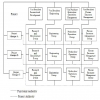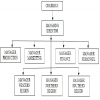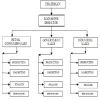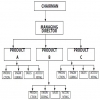Home | ARTS | Management Concepts & Organisational Behaviour
|
Process of Delegation - Delegation Of Authority And Decentralization
Management Concepts & Organisational Behaviour - Delegation Of Authority And Decentralization
Process of Delegation - Delegation Of Authority And Decentralization
Posted On :
This is a crucial step in that a few important questions like what to delegate? When to delegate? Whom to delegate? And how to delegate are answered.
Process
of Delegation
This is a crucial step in that a few important questions like what to delegate? When to delegate? Whom to delegate? And how to delegate are answered. The effectiveness of delegation depends on how clearly these questions are answered. First of all, the manager has to decide the tasks to be delegated to the subordinates. For this, he must be able to distinguish between the routine and non-routine tasks. Routine and simple tasks can as well be performed by the subordinates while the non-routine and very important tasks must be performed by himself.
When the subordinates are assigned certain tasks or responsibilities, it goes without saying that they need authority also to perform the tasks. Authority is required by them to use the resources of the organization for the execution of the tasks. The superior, therefore, parts with his authority to enable the subordinates to perform. Responsibility and authority both go together. One of the important principles of organizing is parity of authority and responsibility which emphasizes the need for a proper balance between the two.
Delegation does not end with just entrustment of duties and the granting of authority. The superior has to create an obligation on the part of the subordinate to perform. In other words, the subordinate is accountable to his superior for the tasks delegated. Thus, while authority flows downwards, responsibility flows upwards. Normally, accountability
Entrustment of Duties or assignment of Responsibilities
This is a crucial step in that a few important questions like what to delegate? When to delegate? Whom to delegate? And how to delegate are answered. The effectiveness of delegation depends on how clearly these questions are answered. First of all, the manager has to decide the tasks to be delegated to the subordinates. For this, he must be able to distinguish between the routine and non-routine tasks. Routine and simple tasks can as well be performed by the subordinates while the non-routine and very important tasks must be performed by himself.
Granting of Authority
When the subordinates are assigned certain tasks or responsibilities, it goes without saying that they need authority also to perform the tasks. Authority is required by them to use the resources of the organization for the execution of the tasks. The superior, therefore, parts with his authority to enable the subordinates to perform. Responsibility and authority both go together. One of the important principles of organizing is parity of authority and responsibility which emphasizes the need for a proper balance between the two.
Creation of Accountability
Delegation does not end with just entrustment of duties and the granting of authority. The superior has to create an obligation on the part of the subordinate to perform. In other words, the subordinate is accountable to his superior for the tasks delegated. Thus, while authority flows downwards, responsibility flows upwards. Normally, accountability
Tags : Management Concepts & Organisational Behaviour - Delegation Of Authority And Decentralization
Last 30 days 758 views
















